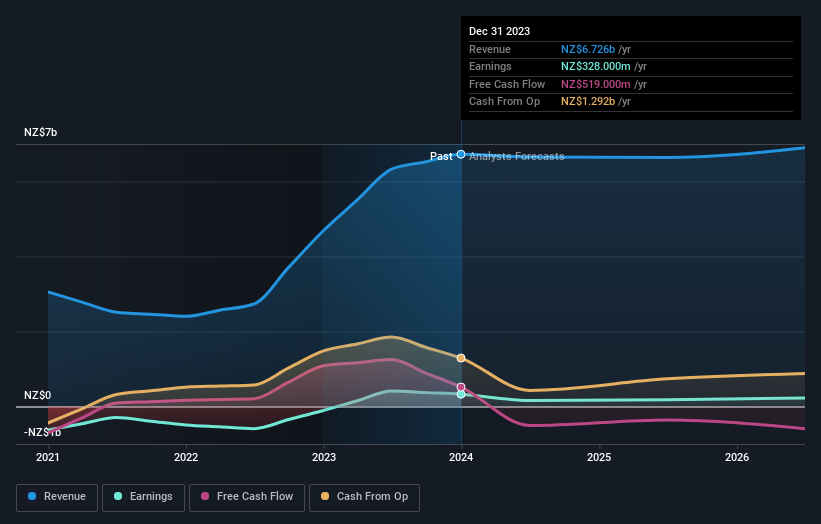Why Air New Zealand Limited (NZSE:AIR) Could Be Worth Watching
Air New Zealand Limited (NZSE:AIR), might not be a large cap stock, but it saw significant share price movement during recent months on the NZSE, rising to highs of NZ$0.66 and falling to the lows of NZ$0.59. Some share price movements can give investors a better opportunity to enter into the stock, and potentially buy at a lower price. A question to answer is whether Air New Zealand's current trading price of NZ$0.60 reflective of the actual value of the small-cap? Or is it currently undervalued, providing us with the opportunity to buy? Let’s take a look at Air New Zealand’s outlook and value based on the most recent financial data to see if there are any catalysts for a price change.
Check out our latest analysis for Air New Zealand
What Is Air New Zealand Worth?
Good news, investors! Air New Zealand is still a bargain right now. Our valuation model shows that the intrinsic value for the stock is NZ$0.99, which is above what the market is valuing the company at the moment. This indicates a potential opportunity to buy low. However, given that Air New Zealand’s share is fairly volatile (i.e. its price movements are magnified relative to the rest of the market) this could mean the price can sink lower, giving us another chance to buy in the future. This is based on its high beta, which is a good indicator for share price volatility.
What kind of growth will Air New Zealand generate?
Investors looking for growth in their portfolio may want to consider the prospects of a company before buying its shares. Although value investors would argue that it’s the intrinsic value relative to the price that matter the most, a more compelling investment thesis would be high growth potential at a cheap price. Though in the case of Air New Zealand, it is expected to deliver a highly negative earnings growth in the next few years, which doesn’t help build up its investment thesis. It appears that risk of future uncertainty is high, at least in the near term.
What This Means For You
Are you a shareholder? Although AIR is currently undervalued, the adverse prospect of negative growth brings about some degree of risk. We recommend you think about whether you want to increase your portfolio exposure to AIR, or whether diversifying into another stock may be a better move for your total risk and return.
Are you a potential investor? If you’ve been keeping tabs on AIR for some time, but hesitant on making the leap, we recommend you dig deeper into the stock. Given its current undervaluation, now is a great time to make a decision. But keep in mind the risks that come with negative growth prospects in the future.
So if you'd like to dive deeper into this stock, it's crucial to consider any risks it's facing. For example - Air New Zealand has 1 warning sign we think you should be aware of.
If you are no longer interested in Air New Zealand, you can use our free platform to see our list of over 50 other stocks with a high growth potential.
Have feedback on this article? Concerned about the content? Get in touch with us directly. Alternatively, email editorial-team (at) simplywallst.com.
This article by Simply Wall St is general in nature. We provide commentary based on historical data and analyst forecasts only using an unbiased methodology and our articles are not intended to be financial advice. It does not constitute a recommendation to buy or sell any stock, and does not take account of your objectives, or your financial situation. We aim to bring you long-term focused analysis driven by fundamental data. Note that our analysis may not factor in the latest price-sensitive company announcements or qualitative material. Simply Wall St has no position in any stocks mentioned.

 Yahoo Finance
Yahoo Finance 
